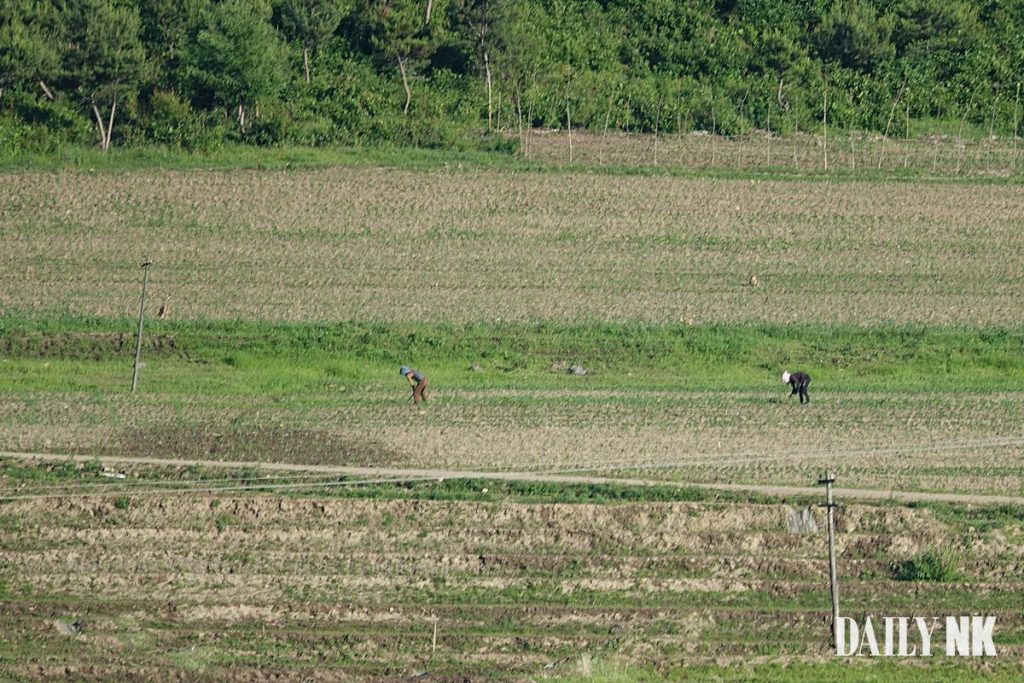
The North Korean authorities began surveying farmland in some areas of the country in April, including Kyongsong County in North Hamgyong Province. Government survey teams, however, are still conducting their activities as of late April and farm managers are continuing to deal with the financial burden of keeping them satisfied.
“Government officials who arrived at the farms three months ago are still there, months later, surveying the land,” a North Hamgyong Province-based source told Daily NK. “Surveying the land farmed by just one work unit takes several days, so survey teams require up to two months to just finish the surveying [multiple work units] on a single farm.”
The government surveyors in North Hamgyong Province are measuring not only farmland registered with the state but also small-scale plots farmed by individuals.
Land department officials affiliated with municipal and county agriculture management committees conduct land area measurements and soil quality tests after the end of the autumn harvest. The surveying process generally ends in the spring and the results are used to establish the government’s national agriculture plans for the following year. Consequently, it is rare for government officials to conduct a land survey during the farming season, as they are currently doing this year in North Hamgyong Province.
Collective farm managers along with two assistants (to help with measurements) must accompany the survey teams. Local agricultural management committees are required to provide these teams with food and board. The source told Daily NK that survey teams are generally picky about their accommodation and food, so farm managers have difficulties meeting their expectations.
“All of the collective farms are facing shortages and barely have enough to feed themselves. The farm managers have to buy grain, side dishes, and even meat to satisfy the survey teams. Preparing all of this is a significant financial burden for them,” said the source.
Farms that have reclaimed land must register the new land with the state-run Land Support Department. Any land no longer used for farming is not reported. Farms typically try to “persuade” survey teams to underreport the area or that the land is acidic. This is because the more land a farm has, the more crops the farm is required to “sell” to the government.
If farms are able to get survey teams to underreport the area of their farmland by just five jongboA unit of measure commonly used to measure the size of land ... More (one jongboA unit of measure commonly used to measure the size of land ... More equals approximately one hectare), local agricultural management committees are able to keep and distribute much more rice to the farmers after the harvest season.
“Collective farm managers have to focus on persuading surveyors to underreport their measurements as much as possible, even though they are extremely busy with farming operations,” a separate source in North Hamgyong Province explained.
“The managers know that their farms benefit more in the long-run if the survey teams report lower numbers to the government than if they just focused on increasing farm production.”




















